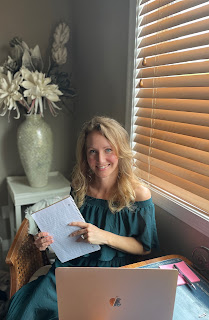AKA, It Took Me Seven Years To Figure Out I Was Writing The Wrong Niche
I grew up on Robin McKinley and Patricia C. Wrede. Tad Williams and Terry Goodkind. David Eddings and Anne McCaffrey. Later I discovered my two favorite authors ever, Michelle Sagara West and Anne Bishop.
Inspired, I began my author career in 2015. . . and in 2018 I burned out.
Part of that was due to external life circumstances, but part of that was due, I now understand in hindsight, to a lack of alignment. See, I was writing shifter romance, then later alien romance. And my alien romance in particular was always slightly off market. It occurred to me in late 2021 why that was.
I kept trying to write my science fiction romance like it was fantasy romance.
I devour Grace Draven and Bec McMaster. Laura Thalassa and Sarah J Maas. In the last year I’ve discovered Katherine Ann Kingsley and Quinn Blackbird and T.A. White, and . . . you get it. See a trend?
These are all authors of fantasy romance, and they are just the tip of my FaRo library.
What I was not reading was science fiction and shifter romance.
Back to #writerlife, it was taking me four months to write a 60,000 word book. To put this in context, once I finally began to write in the niche that I read and most love, I was dictating 4,000 to 5,000 word days. And though I enjoyed writing my paranormal and science fiction romance, it was the fantasy romance that sparked joy.
Suddenly, my productivity went through the roof. The comments I received from alpha readers and editors was that they felt the joy and alignment oozing through my manuscript. Because, duh, I was finally writing the kind of stories I devour on a daily basis.
Why hadn't I started out in fantasy romance?
The short answer is because of a plethora of well-meaning advice to write to market. And when I came into the indie author space, writing to market meant bear shifters. And wolf shifters. And dragon shifters. And every other shifter galore . . . plus vampires. I let myself get talked into writing stories that were adjacent to what I love, but not quite hitting the bullseye.
My current fae fantasy romance series was completely unplanned. I snapped one day at the end of November in 2021 and sat down at my laptop and began dictating a story that had been floating around in my head for several weeks. It was so vivid, the characters coming alive in my head in ways characters had never done so before.
I'm writing faster than I ever have while maintaining the complexity of character arcs, romance arc, opposing force, subplots, and prose.
Now, all of this isn't to say that I've dropped everything else. I am fortunate that I also write in a small niche with a rabid reader base and that niche is helping to support my catalog while I get my fantasy romance profitable, which I project will happen around Book 3.
Being an indie author is a long game. “Write to market” is solid advice, but I would caveat that with, “write to market in a niche you naturally read and love and devour.” In the end your stories will be better aligned with the reader, you'll produce faster (whatever faster means to you) and you'll have more joy, which is absolutely required because we all know this is a grind. Without joy, eventually even the most determined author will break.
Because this is a long game, money will come in time (if caveat: You Did Your Job with Cover/Blurb/Story.) What I have learned, is that for the sake of my business, it's better for me in the long run to write what I love instead of writing what I know will make money faster. I could churn out six to seven sci-fi romance books in a year and make good money . . . but I can't sustain that long term, as I’ve already proven to myself.
When I write what I love, carefully aligned to the tropes of that niche, then I can look down the tunnel of a 5- to 20-year career and look forward to the daily hard work rather than approach my laptop with low-level dread.
So I would leave you with some questions. What do you love to read? Who do you devour? Is your writer self aligned with your reader self? And if not, what plan can you put in place to shift your business slowly, without sacrificing income, in a direction that is sustainable for you long term?
Emma Alysin is a 40 mumble mumble bi-racial American Muslim mom of five who writes SFR, PNR & Fantasy Romance.
Her dragons, fae, and bears will most interest readers who like their alphas strong, protective, and smokin’ hot; their heroines feisty, brainy, too grown to give a *uck, and over the age of 30.
Her stories feature men and women of diverse backgrounds.













